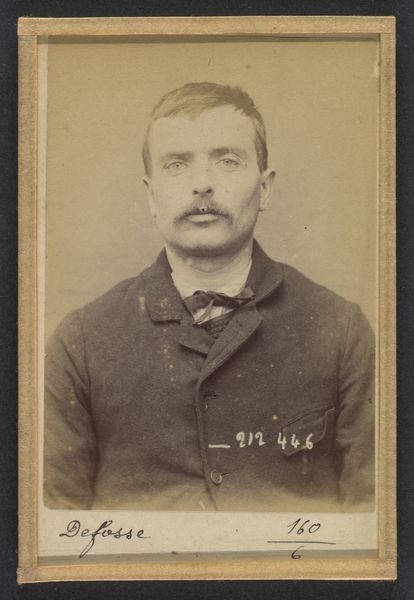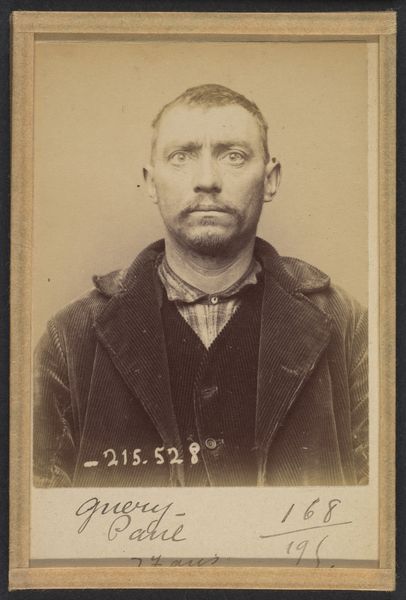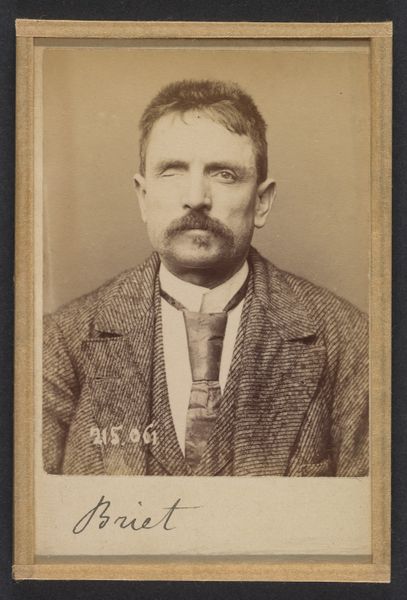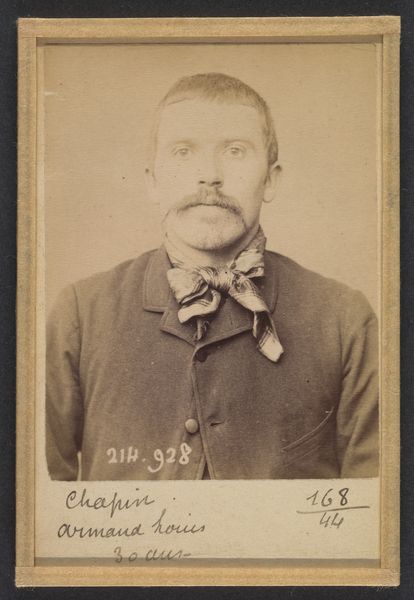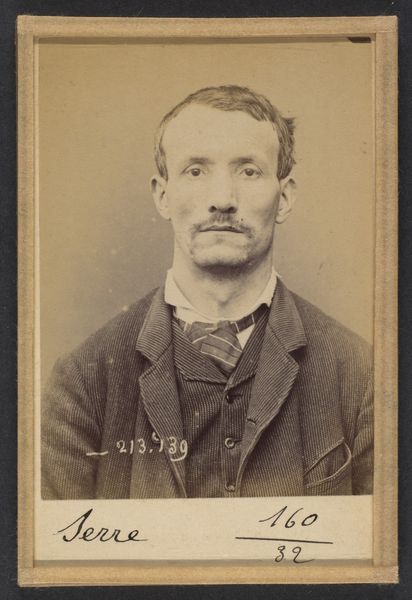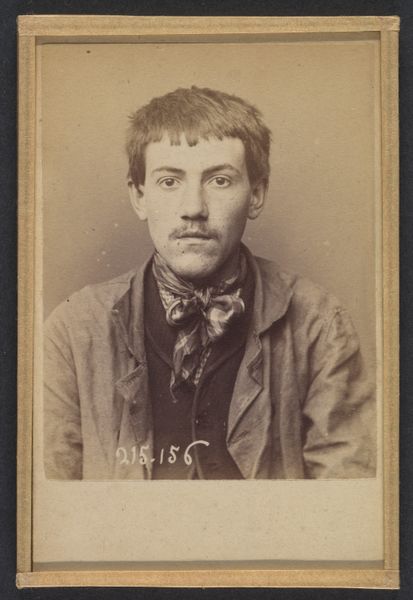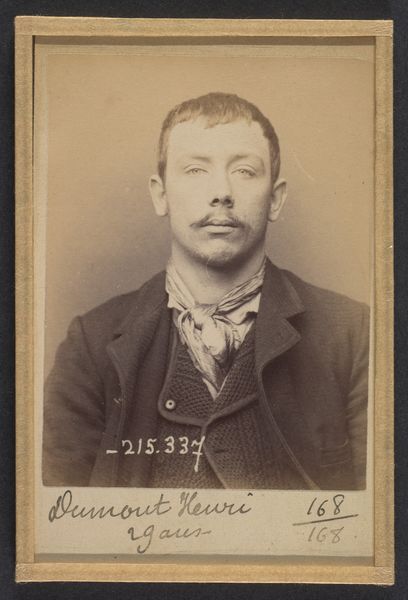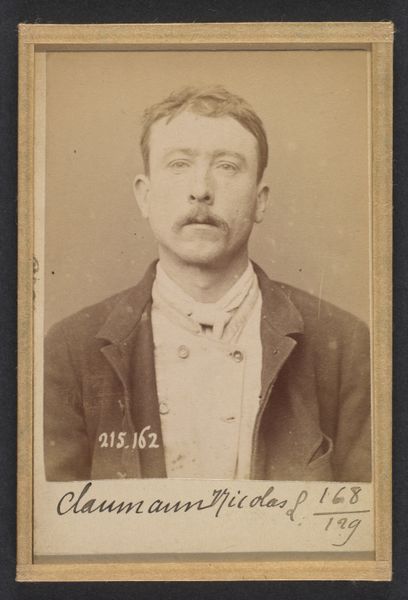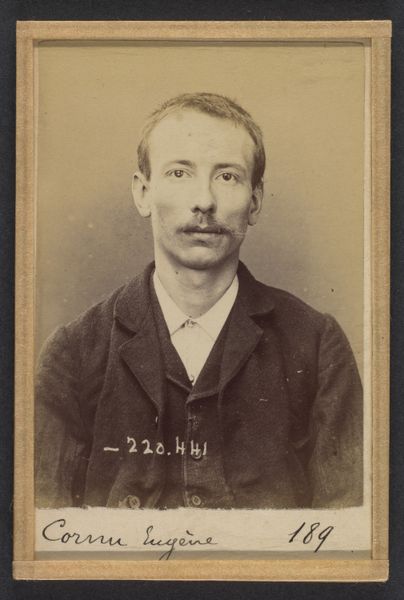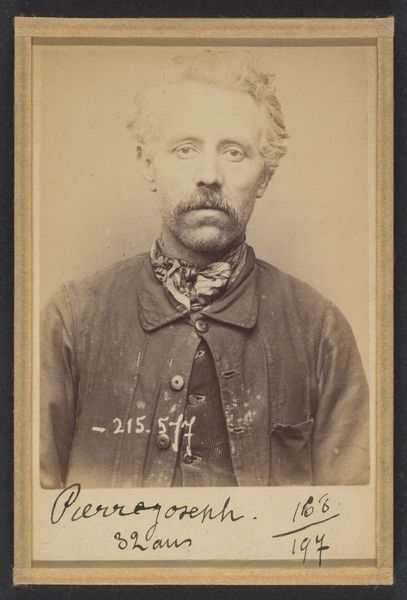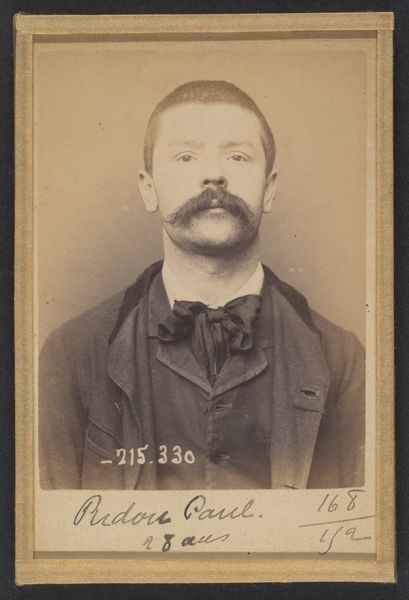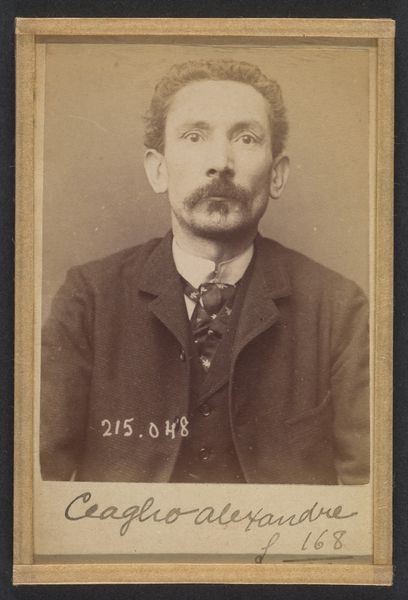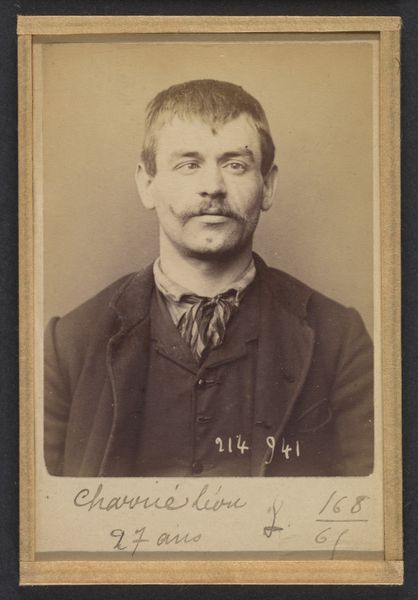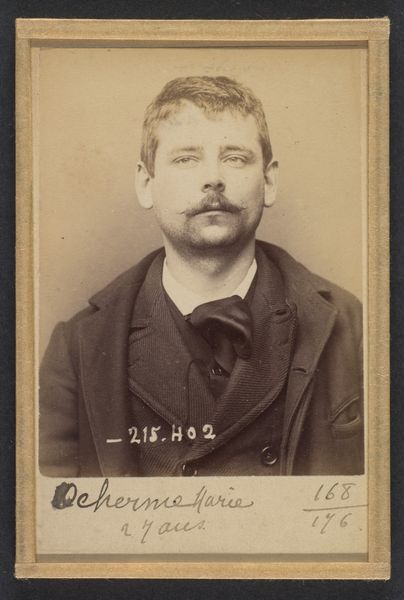
Guignard. Georges, Auguste. 36 ans, né le 1/1/58 à Neuilly (Seine). Plombier. Anarchiste. 15/3/94. 1894
0:00
0:00
photography, gelatin-silver-print
#
portrait
#
16_19th-century
#
portrait
#
photography
#
gelatin-silver-print
#
history-painting
#
realism
Dimensions: 10.5 x 7 x 0.5 cm (4 1/8 x 2 3/4 x 3/16 in.) each
Copyright: Public Domain
This mugshot of Georges Auguste Guignard, a 36-year-old plumber and anarchist, was made in France by Alphonse Bertillon in 1894. Bertillon was a French police officer and biometrics researcher who applied anthropometric techniques to law enforcement creating an identification system based on physical measurements. This image exists at the intersection of art, science, and social control. Photography in the late 19th century was rapidly changing, and Bertillon was at the forefront of using it as a tool of the state. He saw the potential for creating a visual record of criminals that could be used for identification and tracking. In a society grappling with anxieties about crime and social disorder, Bertillon's system offered a sense of order. The very act of photographing and categorizing individuals like Guignard speaks to the power dynamics at play. To understand this photograph, we can consider the social and political context of the time. France in the late 19th century was a society grappling with rapid industrialization, urbanization, and political upheaval. The rise of anarchism as a political movement challenged the established order, and figures like Guignard were seen as threats to social stability. By consulting archival records, police reports, and historical accounts, we can begin to piece together the story behind this image and the social forces that shaped it.
Comments
No comments
Be the first to comment and join the conversation on the ultimate creative platform.
